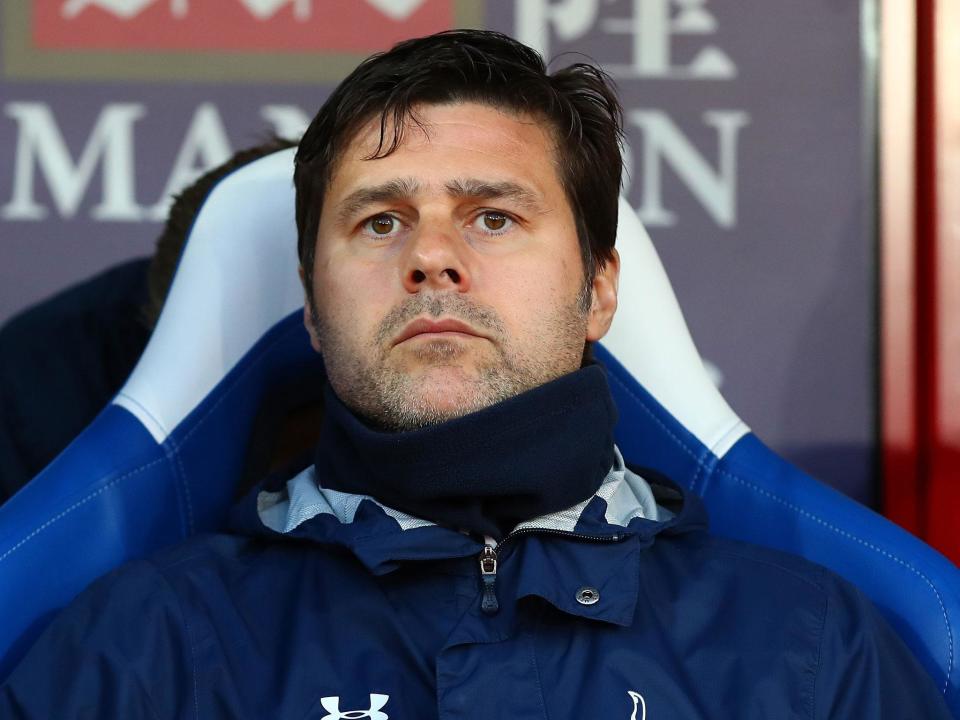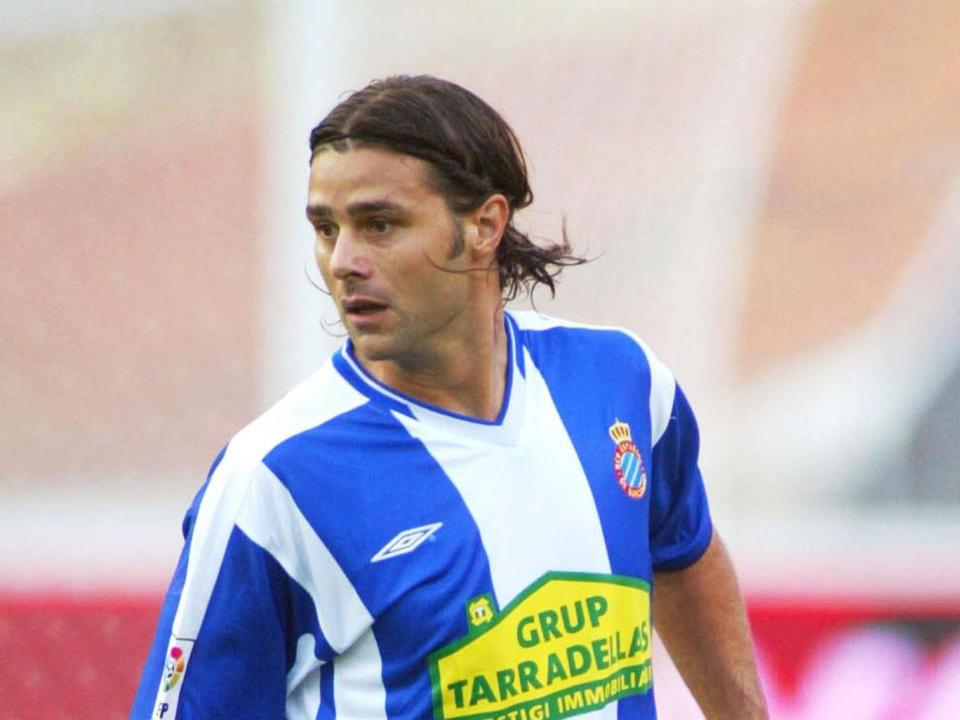Mauricio Pochettino 'feeling the same' about White Hart Lane farewell as he did at Espanyol 20 years ago

Whenever a team plays its last game at an old home the picture is the same. When Espanyol finished their last match at the Sarria, their ground for 74 years, there were children swarming on the pitch for mementos and adults in tears in the stands.
Mauricio Pochettino remembers the scene very well. He was playing for Espanyol that day, as they beat Valencia 3-2, back in June 1997. 20 years on Pochettino is managing a team saying their own long farewell to their old home. And he recognises the same emotional momentum, the same shared obligation, firing his own team on.
Tottenham play their penultimate game at this White Hart Lane on Sunday against Arsenal. Then, two weeks later, they host Manchester United. There could not be a better pair of opponents to see off the ground. And when the whistle goes on 14 May, there will be that same flood of bodies on the pitch that Pochettino has seen before.
There is a special power possessed by teams ticking off their final games in a stadium. That is what West Ham United found last year at the Boleyn Ground, the desperate energy of the crowd driving them to an unforgettable extra-time defeat of Liverpool in the FA Cup, a 1-0 win over Tottenham and then the 3-2 farewell against Manchester United under lights.
This season at White Hart Lane Spurs have been even more impressive. They have won a remarkable 15 straight games there, 12 in the league and three in the FA Cup, a five-month run dating back to overturning West Ham on 19 November last year. On this run they have racked up 49 goals, conceding just nine. West Bromwich Albion, Stoke City, Bournemouth and Watford have all been beaten 4-0, Swansea City 5-0 and Millwall 6-0. And they ended Chelsea’s winning streak with a famous 2-0 win in January.
All of which means that Tottenham will arrive on Sunday with so much momentum behind them they will take some stopping. As Pochettino well knows. “It is true that this is a special season at White Hart Lane,” he said last month when asked about their home form.
“We can all feel it. I think you are the same. You can feel that it’s very special every time that we play. The people are more open to help the team, the team is more focused, trying to pay back to the supporters that support. Yes, I think it’s special. It’s a moment when you start to feel very comfortable there. You start to miss it before you leave. Every time you are there, you miss it, you start to miss it.”

Pochettino recognises that special feeling from the 1996-97 season. That Espanyol team was nowhere near as good this Spurs team, of course, and they finished the season in 12th. Pochettino was in his third season playing for them, and he still remembers how the players fed off the atmosphere. “I remember very well the last games, the last season at the Sarria,” he said. “It was very emotional, with a big history. It was very special. I was a player and I felt how emotional it was.”
Sunday will be the last ever derby at this form of White Hart Lane, and Pochettino will never forget the last ever Espanyol v Barcelona derby at the Sarria, back on 9 February 1997. Bobby Robson’s Barcelona, inspired by the brilliant 20-year-old Ronaldo, crossed town with just one day’s rest after knocking Real Madrid out of the Copa del Rey.
Espanyol were fired up, resentful of their rival's recent success. They had not beaten Barca since 1987, since when Johan Cruyff’s ‘Dream Team’ had won four straight La Liga titles as well as the 1992 European Cup. Aside from their run to the final of the UEFA Cup in 1988, Espanyol had had precious little to shout about.
But when Barcelona showed up Espanyol were ready for them, overwhelming them with intensity and a bit of luck too. Referee Carlos Megia Davila awarded two penalties, both of them converted by Florin Raducioiu, who had just returned to Espanyol from his infamous spell at West Ham. The first came when Pochettino squeezed Fernando Couto into a handball. Robson and a 34-year-old Jose Mourinho looked mystified on the bench, Pep Guardiola and Luis Figo were booked for dissent.
Pochettino did a masterful job shackling the young Ronaldo that afternoon and by the end the gleeful Espanyol fans were singing their own version of a modern chant: “Bobby Robson, we want you to stay”. When Luis Enrique was substituted he nearly came to blows with a confrontational Espanyol fan who he insulted.
It was one of the great days in the modern history of the club. While the Sarria had been Espanyol’s home for 74 years, there was a feeling that its best moments, at least until the 1988 UEFA Cup run, came in the 1982 World Cup. It was lucky enough to host Italy 3-2 Brazil, one of the greatest games ever played.
There was a sense of bitterness about Espanyol’s departure, too, the fact that their ground, at the heart of their community, was to be knocked down and replaced by flats. This was a solution of sorts to the club’s financial woes, but the fans were not confident the team would see the benefits of the sales. They did not want to move to the old Estadi Olimpic at Montjuic, where they would end up playing until 2009.
This was the emotional context for the sad farewell against Valencia on 21 June. It was a 40,000 sell-out, a nightmare to get tickets for, but at least Espanyol won, to say goodbye in the perfect way. What Pochettino would give for a similar goodbye against Manchester United in two weeks’ time.
“I always remember the last game, winning 3-2 against Valencia,” Pochettino remembered. “The last game, the day that the stand came down, how the people cried. It was very, very emotional. And now it’s happening at White Hart Lane, many, many years after. I am living the same, and feeling the same, that I was 20 years ago.”

 Yahoo Sport
Yahoo Sport 





































